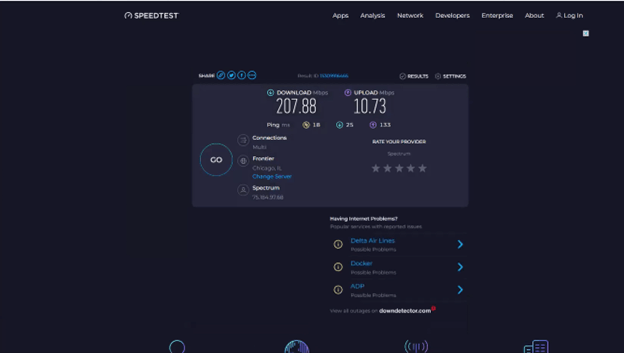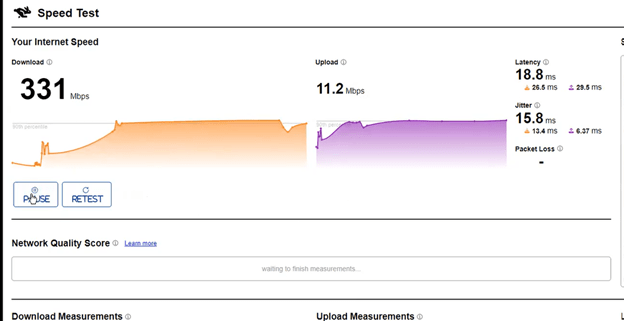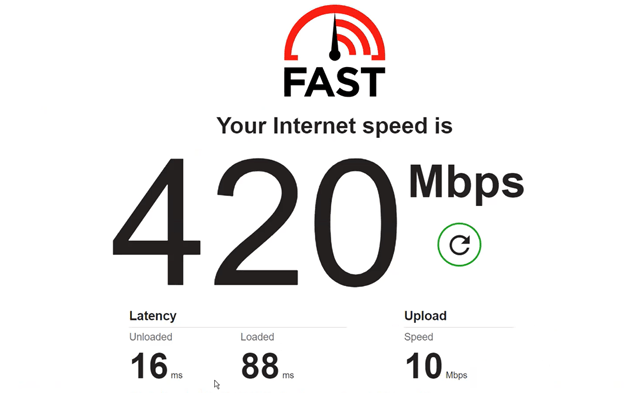
For businesses, small or large, internet speed is imperative for a company's work processes. In some instances, many users will use speed tests to gauge the performance of their internet connections. However, the results of these tests can sometimes be unpredictable. Why? This is because the speed of your internet connection is not a fixed number; it's a dynamic value influenced by many factors.
Today, I had the opportunity to speak with one of our System Engineers, Zeb Rhinesmith, about how internet speeds work and to guide you in making informed judgments while reviewing the results.
The Crucial Role of Location
When you decide to run a speed test, whether it's to check your home internet or your business's network, one factor that can significantly affect the results is the physical location of the test server. Internet speed test services maintain a network of servers strategically placed worldwide. When you initiate a test, you're connected to one of these servers, and the data is exchanged between your device and the server.
Imagine you're in New York, and your chosen speed test service connects you to a server located in Los Angeles. The data must travel across the country through various internet infrastructure components before reaching the server and returning to you. This cross-country journey introduces latency, which can lead to slower perceived speeds.
Different Test Providers, Different Results
Not all speed test providers are created equal. There are various popular speed test websites and applications, each using its own set of servers and methodologies. This means that when you run speed tests with different providers, you may get different results, and it depends on what you are downloading, even if you use the same device and internet connection.
For example, Speedtest by Ookla, Fast.com by Netflix, and Cloudflare's speed test tool all offer different testing experiences. Ookla's Speedtest provides a comprehensive analysis of internet speed, measuring both download and upload speeds, making it versatile for various purposes.
Netflix's Fast.com, in contrast, is geared towards streaming quality assessment, focusing primarily on download speed to ensure smooth playback.
In the tests conducted below using our wired connection, it's evident that the numbers vary inconsistently across different speed test websites. This inconsistency highlights the need for businesses to rely on a consistent speed test website to obtain accurate and reliable speed measurements. Using a single, trusted testing platform ensures that you can make informed decisions about your internet performance without the variability introduced by different test providers.



Why the Discrepancies Matter
Summary of how location and the choice of speed test provider influence your results:
Service Quality
For businesses, understanding the speed and reliability of their internet connection is essential to ensure critical operations run smoothly.
ISP Evaluation
Speed tests help users and businesses assess whether they receive the bandwidth they are paying for from their Internet Service Provider.
Comparative Analysis
As stated before, different speed tests may provide different results, making it essential to use the same test consistently when comparing internet performance over time or across other locations.
In internet speed tests, location matters, as does the choice of test provider. Whether you're a business seeking optimal performance or a user aiming to make informed decisions about your internet service, knowing these factors can help you navigate the speed test maze and get more accurate insights into your internet connection's true capabilities. Remember, it's not just about how fast your internet is but also how and where you measure it.




